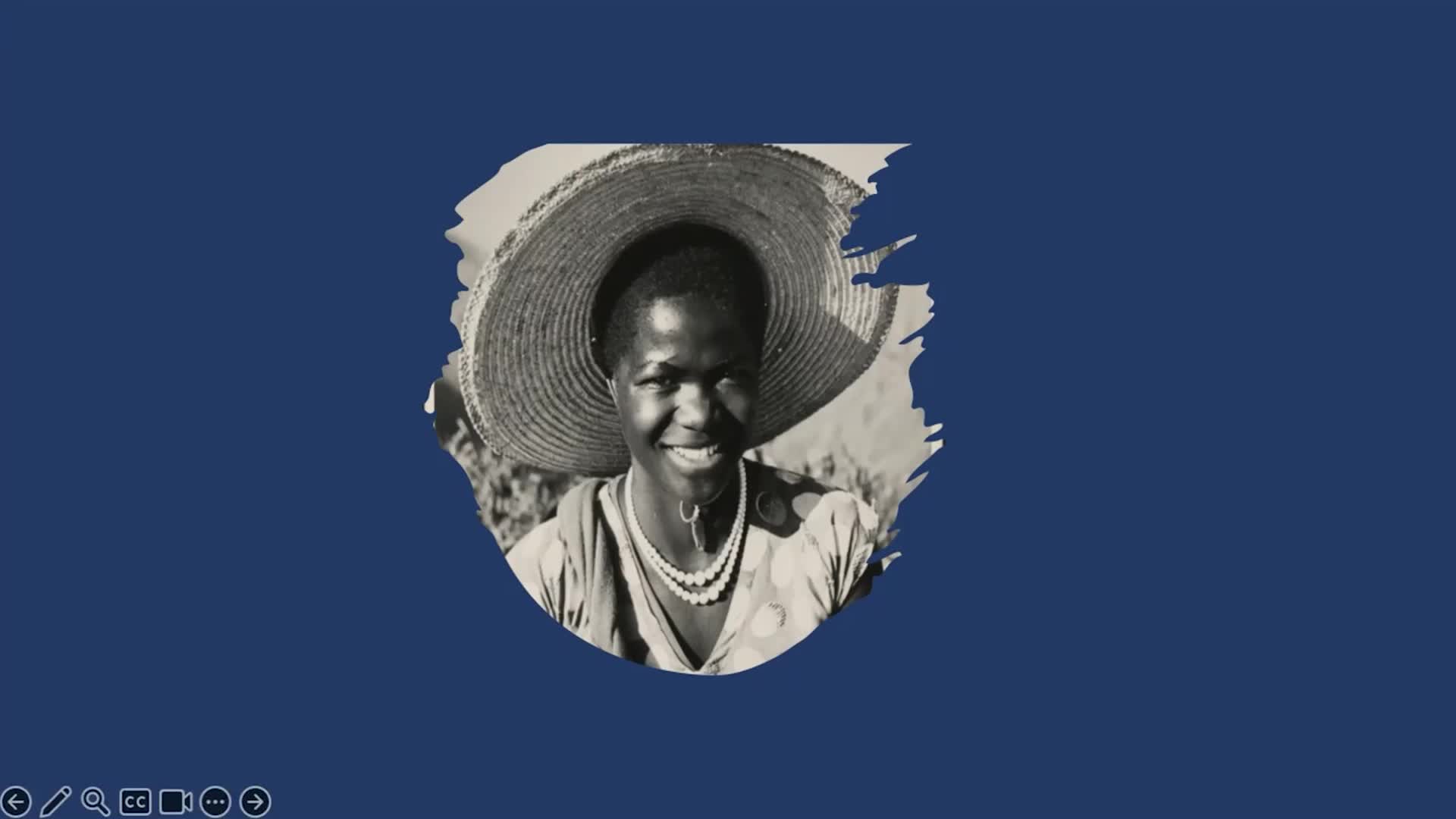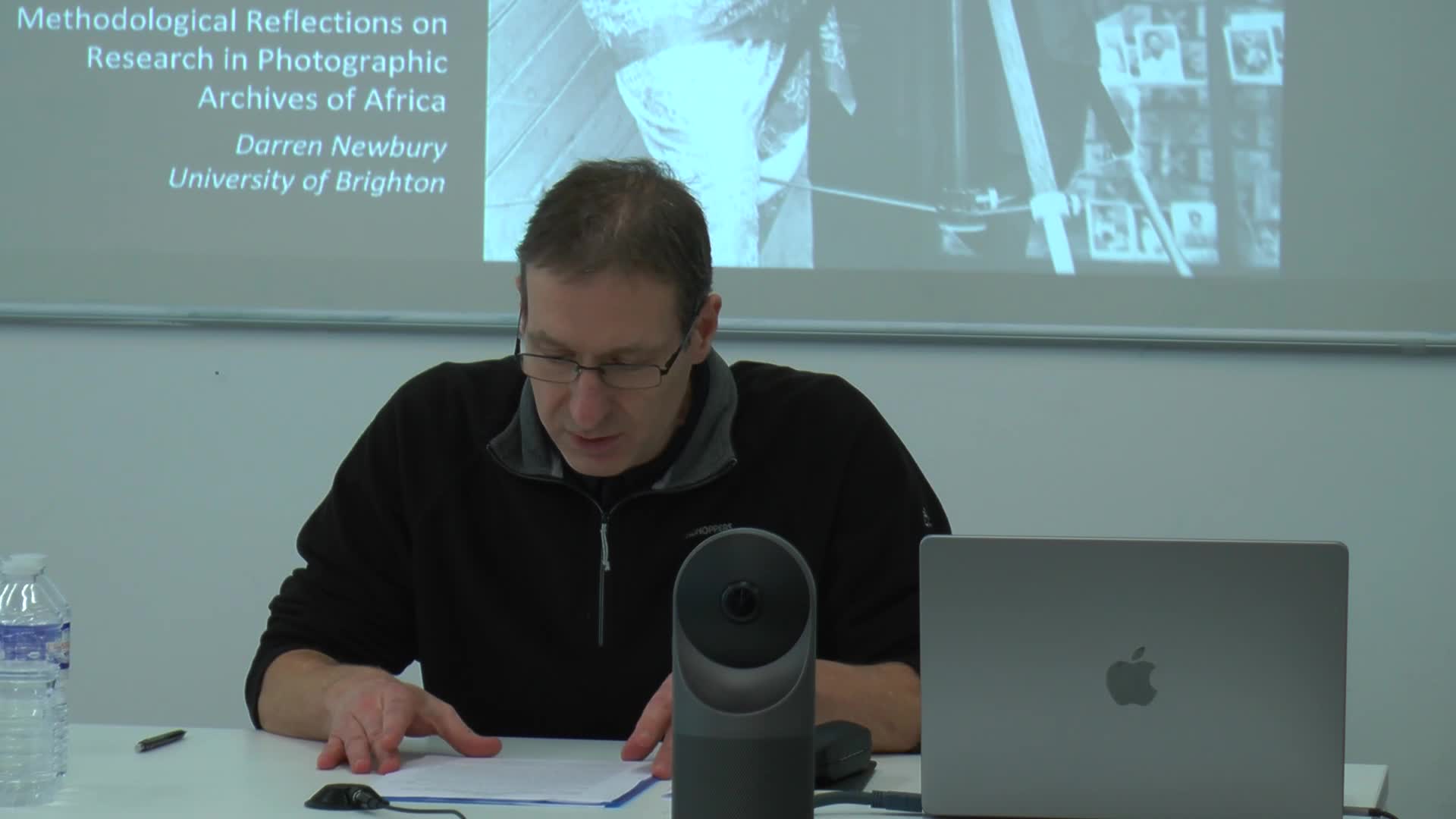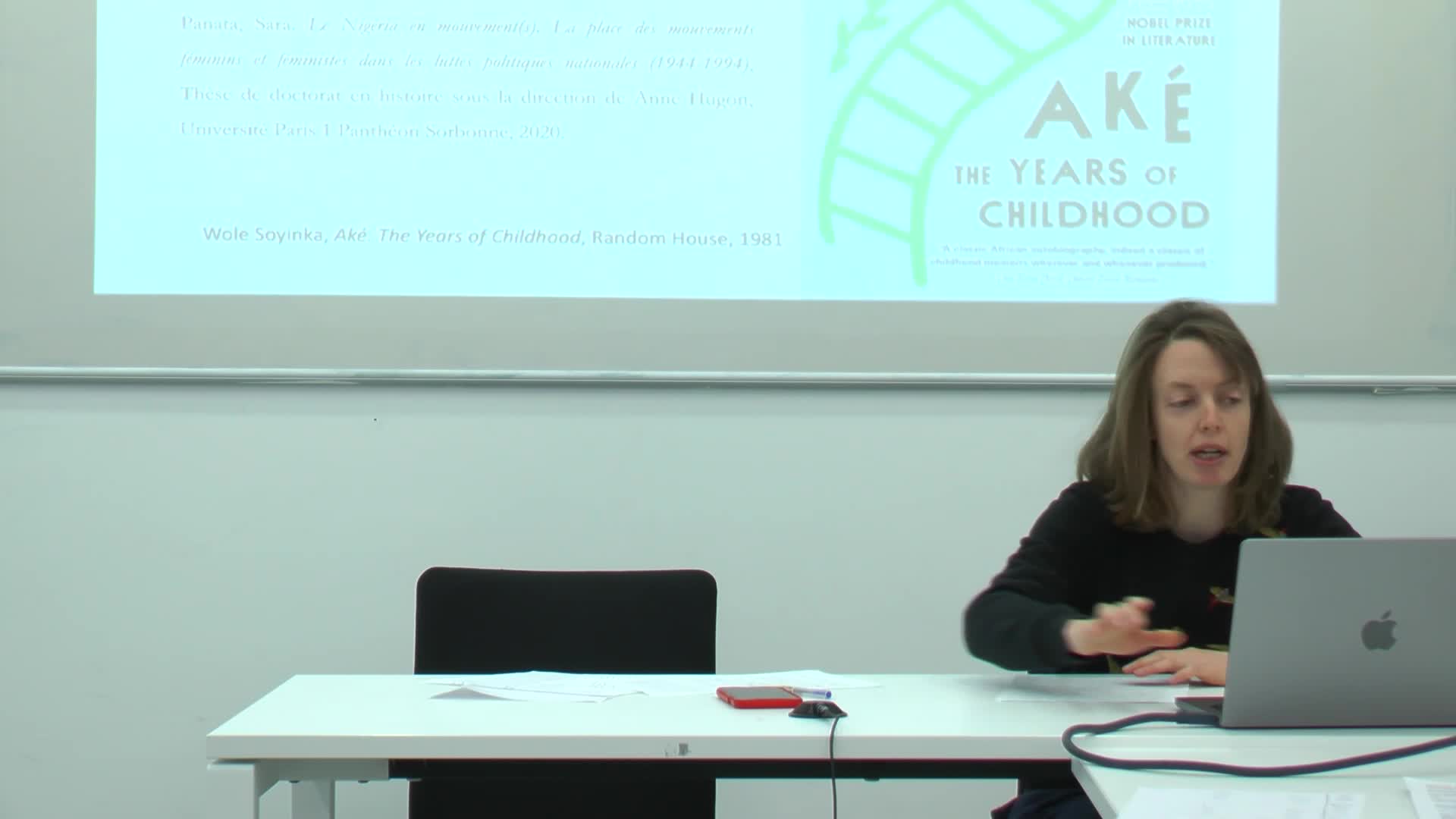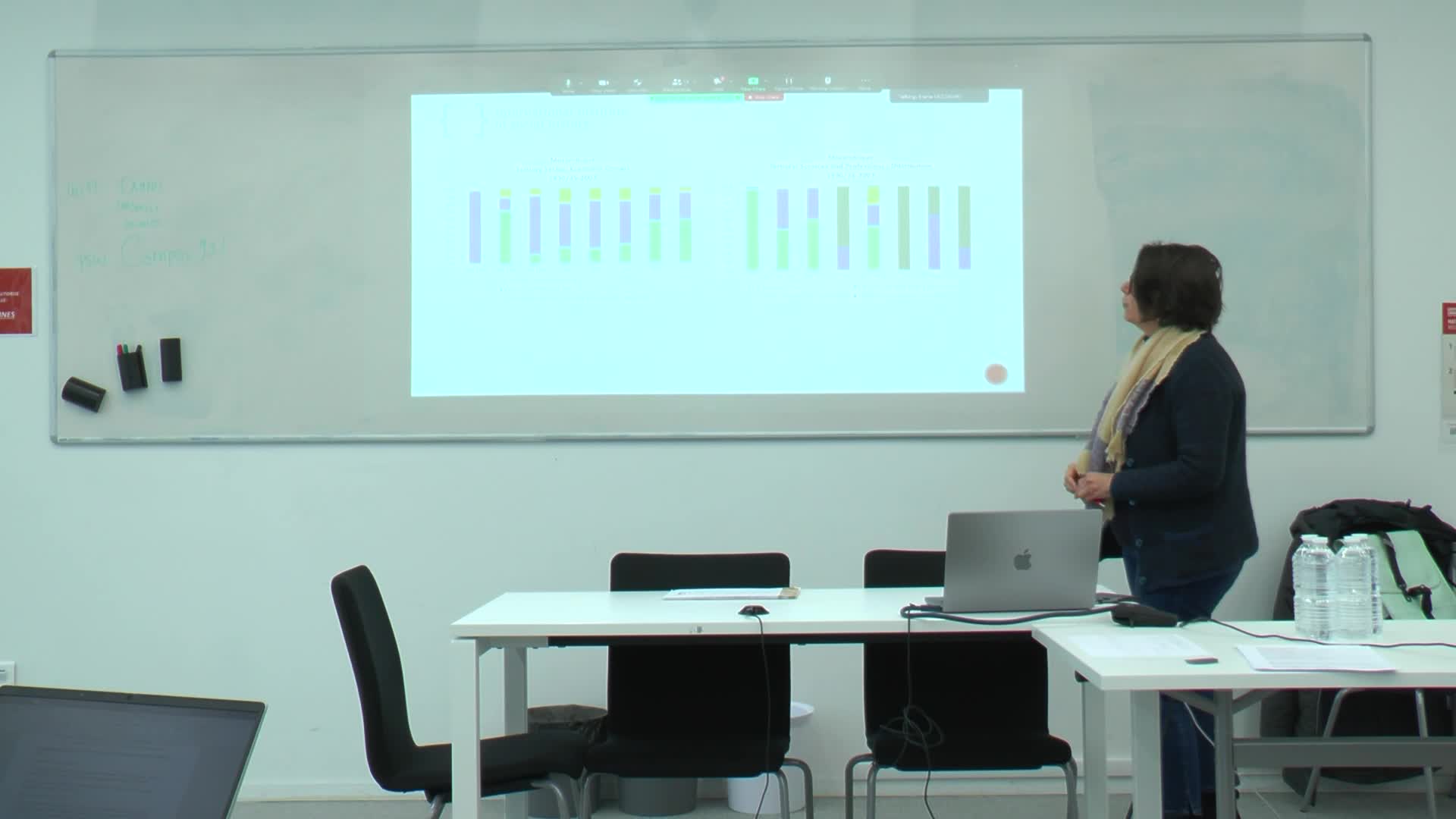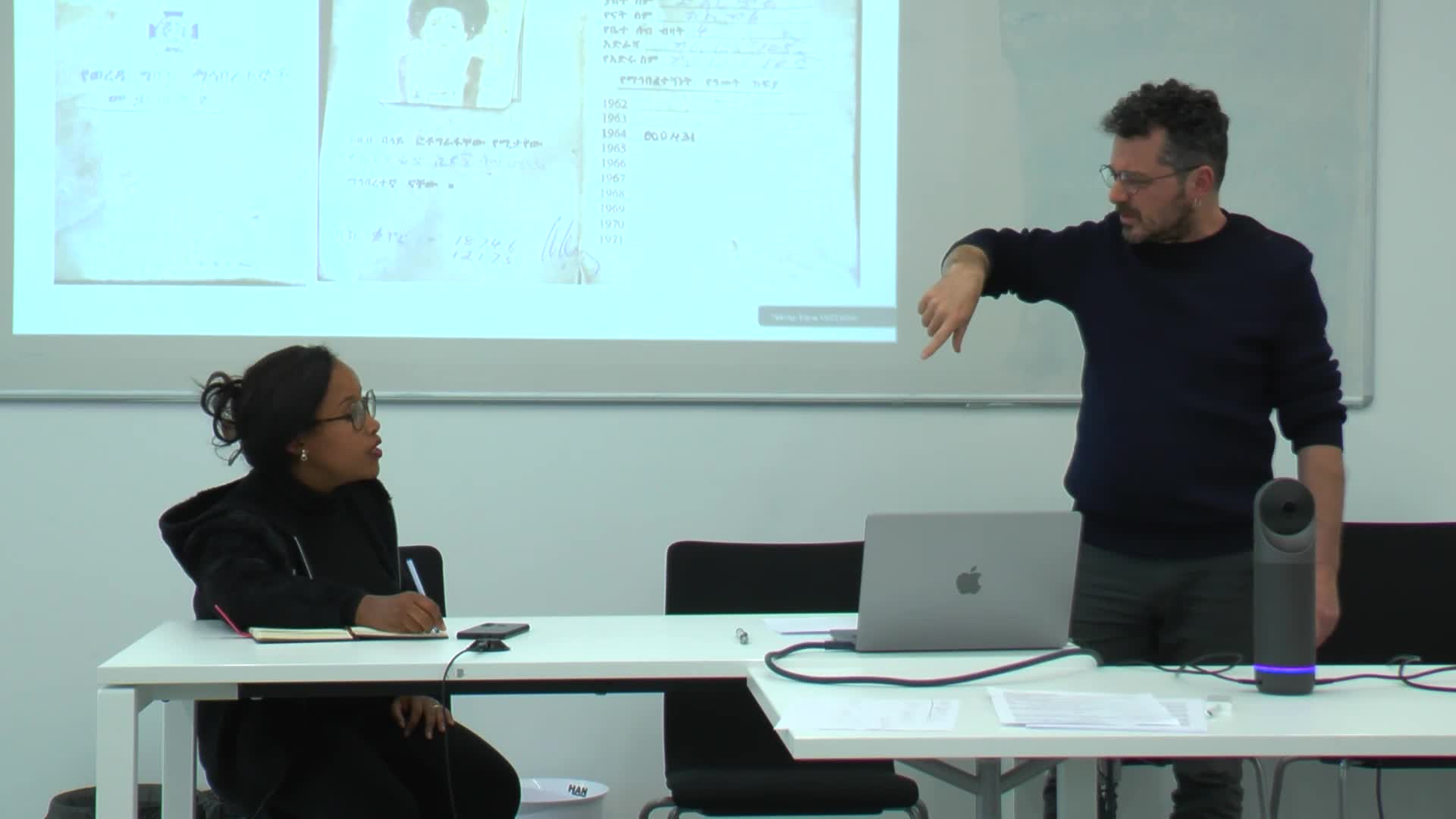Notice
Creative Methodologies - Writing the stories of working women from popular classes in African urban milieux, 1920 - 1970 - Partie 1
- document 1 document 2 document 3
- niveau 1 niveau 2 niveau 3
Descriptif
Creative Methodologies - Writing the stories of working women from popular classes in African urban milieux, 1920 — 1970 = Écrire les histoires de femmes travailleuses issues des classes populaires dans les milieux urbains africains, 1920 — 1970 - Partie 1
Noor Nieftagodien, University of the Witwatersrand
Social History and the Recovery of Women’s Experiences in History
Social Historians in South Africa have since the 1970s made important contributions to uncovering hidden histories of subaltern group with the aim of challenging hegemonic narratives and to produce alternative histories. These ‘histories from below’ generally sought to centre the experiences of the black majority in a context of mounting struggles against white minority rule. It was recognised early on that gender would be critical in the project of creating new histories, and early interventions focused on the role of women in resistance, as trade unionists, community leaders and members of various liberation organisation. Drawing on this work and influenced by feminist scholarship, attention shifted to uncovering the everyday lives of women in various spheres, much of which were overlooked in earlier scholarship. In this presentation, I aim to examine some of the recent research on the quotidian experiences of women that have been undertaken in the History Workshop at Wits University and to reflect on methodological issues related to this work. The first example is a Public History project involving trade unions in which young members interviewed ‘veterans’ of the movement with the aim of engendering intergenerational conversations about the histories of women in building trade unions in different periods of the country’s history. Secondly, an initiative by women who were among the early members of the Black Consciousness Movement in the 1970s who have been concerned to produce their own histories, on their own terms, particularly to speak about their personal experiences that have hitherto been ignored or silenced in the scholarship of this movement. Thirdly, a project on the working lives of women in one part of Soweto explores the shifts in the feminisation of labour and how young women in the township are turning increasingly to the informal economy (especially small-scale businesses such as hairdressing and food outlets) to avoid the ravages of unemployment. Notwithstanding the precarity and hardships associated with these activities, they appear to inculcate a degree of (limited) autonomy and pride. Methodologically, most of this work has been undergirded by oral histories, especially life history interviews, to record multiple facets of women’s experiences. It is a means deliberately to underscore the entanglements between the personal and political, albeit not without challenges about how to record women’s histories.
Akosua K. Darkwah, University of Ghana
Beyond the Archive: The River of Life as an Interview Method
In this presentation, I share the importance of arts-based research approaches for the humanities. Artsbased research draws on different art forms – dance, music, poetry, etc – in data generation, analysis, interpretation and representation. The river of life is one such arts-based research approach. It uses drawings to generate information about the lives of research participants. Although arts-based research is primarily used in performing arts spaces, I draw on my own work in the social sciences which uses the river of life approach to look at women’s work as well as that of Denov and Shevell’s use of the river of life approach in their work with young people born out of rape to illustrate the usefulness of the arts-based approach in general and the river of life approach in particular. As an autobiographical mapping tool, I demonstrate its utility especially for working on the life histories of creatives such as fashion designers, dancers and visual artists.
Intervention / Responsable scientifique
Thème
Documentation
Dans la même collection
-
Creative Methodologies - Writing the stories of working women from popular classes in African urban…
NyantoSalvatory S.SimbaAlmaWorku KebedeDanielTiwaah Adu BohaenJulietÉcrire les histoires de femmes travailleuses issues des classes populaires dans les milieux urbains africains, 1920 - 1970 - Partie 4
-
Creative Methodologies - Writing the stories of working women from popular classes in African urban…
NewburyDarrenHeuvelDanielle van denÉcrire les histoires de femmes travailleuses issues des classes populaires dans les milieux urbains africains, 1920 - 1970 - Partie 2
-
Creative Methodologies - Writing the stories of working women from popular classes in African urban…
HunterEmmaBerthoElaraSharkeyHeather JaneSharifMariamÉcrire les histoires de femmes travailleuses issues des classes populaires dans les milieux urbains africains, 1920 - 1970 - Partie 5
-
Creative Methodologies - Writing the stories of working women from popular classes in African urban…
Meier zu SelhausenFelixSilvaFilipa Ribeiro daGibbsTimothyCristofaroDomenicoÉcrire les histoires de femmes travailleuses issues des classes populaires dans les milieux urbains africains, 1920 - 1970 - Partie 3
-
Creative Methodologies - Writing the stories of working women from popular classes in African urban…
HugonAnneSahledengilTirsitGuidiPierreVezzadiniElenaÉcrire les histoires de femmes travailleuses issues des classes populaires dans les milieux urbains africains, 1920 - 1970 - Partie 6


